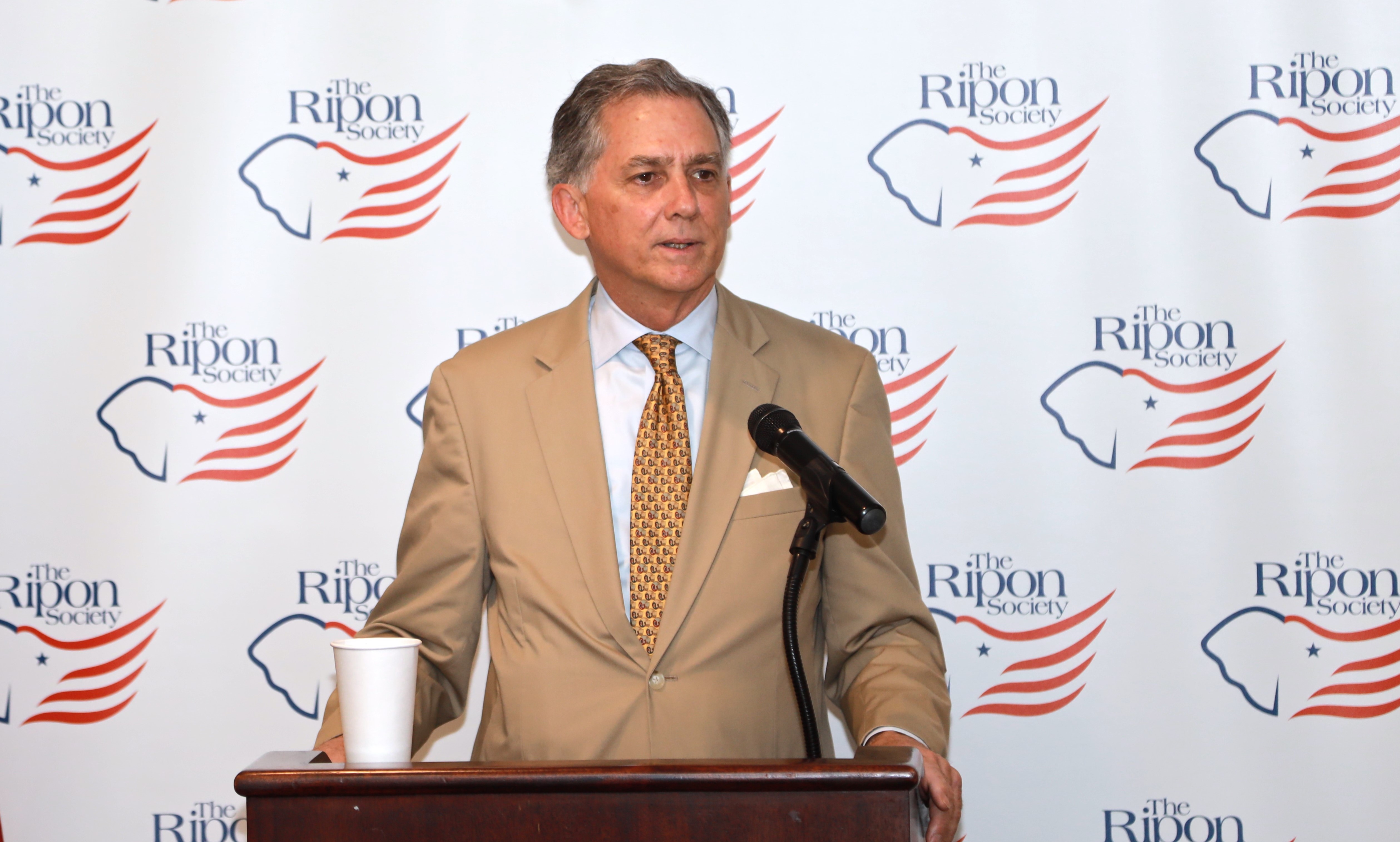
Hill Leads Effort to Ensure the Federal Government Helps – not Hinders – the Development of Artificial Intelligence
WASHINGTON, DC – In remarks yesterday morning before a breakfast meeting of The Ripon Society, U.S. Representative French Hill (AR-2), Vice Chairman of the Financial Services Committee, discussed his leadership of the Committee’s bipartisan Working Group on Artificial Intelligence (AI), as well as how the evolving technology is transforming the financial and housing industries.
“[AI] is an important topic because it’s about the future of financial services. … We need to get this right. And I want to say on behalf of the Financial Services Committee, nobody’s worked harder understanding it than the members of our committee.”
Hill, a businessman by nature, was elected to the House in 2014 after working as a generational banker in his hometown of Little Rock which he now represents. In addition to his role as Vice Chairman of the Financial Services Committee, Hill chairs the Digital Assets, Financial Technology and Inclusion Subcommittee.
Hill shared that he has been working across the aisle with both Subcommittee Ranking Member Stephen Lynch (MA-08) and Rep. Bill Foster (IL-11) since 2019 on the matters of AI and financial technologies (FinTech). In the 118th Congress, Hill currently serves as co-Chair of the bipartisan Working Group on AI and on Speaker Johnson’s and Minority Leader Jefferies Bipartisan AI Task Force as well.
“[The bipartisan Working Group on AI] just put out our report this week. It’s important that we in this country get this right because of our innovative spirit in our global position to help lead in technology in our commercial private sector. There’s a growing effort to do that.”
The report is a culmination of six roundtables with varying agencies and industries, including the U.S. Department of Housing and Urban Development (HUD), the U.S. Securities and Exchange Commission (SEC), the Consumer Financial Protection Bureau (CFPB), and several bank regulators, in which they discussed the current and potential use of AI in the workforce (within the housing and financial services sectors). Their answers, Hill shared, were all “principle-based.”
“And I think that’s precisely the takeaway in thinking about AI oversight, whether it’s in your business, your corporation, or at the Department of Defense, as we think about it in the rubric of doing oversight in our role in Congress, and that is to be principles-based. Meaning they weren’t going to stop you from experimenting with AI. We, the regulators, we’re not going to say to bank A, you can’t use AI in your business.
“And I think that is a decent starting point for this whole discussion because AI offers immense productivity gains and we want more output per worker, which is what productivity is, and AI offers that potential at scale.
“AI’s a tool that makes the human leader, the human compliance officer, the human lender, the human consumer advocate, more effective. It’s not a replacement for that person. It makes that person more effective at scale, faster to do more complex tasks and leaves those decision-making tasks to the boss, to the person, to the human.”
The report also found that the Committee must do its due diligence to “ensure regulators apply and enforce existing laws, including anti-discrimination laws, and assess regulatory gaps as market participants adopt AI.”
Hill explained that “if you used a piece of parchment and a quill pen, you’re under obligation to comply with fair lending, fair credit reporting, state insurance regulations, and housing protections. And the same is true if you use an AI model machine learning algorithm to advance your work.”
But, Hill emphasized, “AI is a tool to be used to boost productivity in all kinds of extraordinary scientific, business, commercial, and personal interactions. It should be principle-based, and we should let this be experimented with, used to make our lives more effective, whether it’s on our personal phone with ChatGPT or determining a new compound that will cure ovarian cancer.
In closing, the Vice Chair noted that AI still has a long way to go and is far from replacing Americans in the workforce.
“This is not ready for prime time. There are many errors. It is not perfect, which is why [the private sector] wants the human in the loop. They have all those laws and regulations to comply with and they’re still responsible for that – not some anonymous algorithm or arrhythmic solution to a question somebody put in a chat box.”
To view Hill’s remarks to The Ripon Society yesterday morning, please click the link below:



